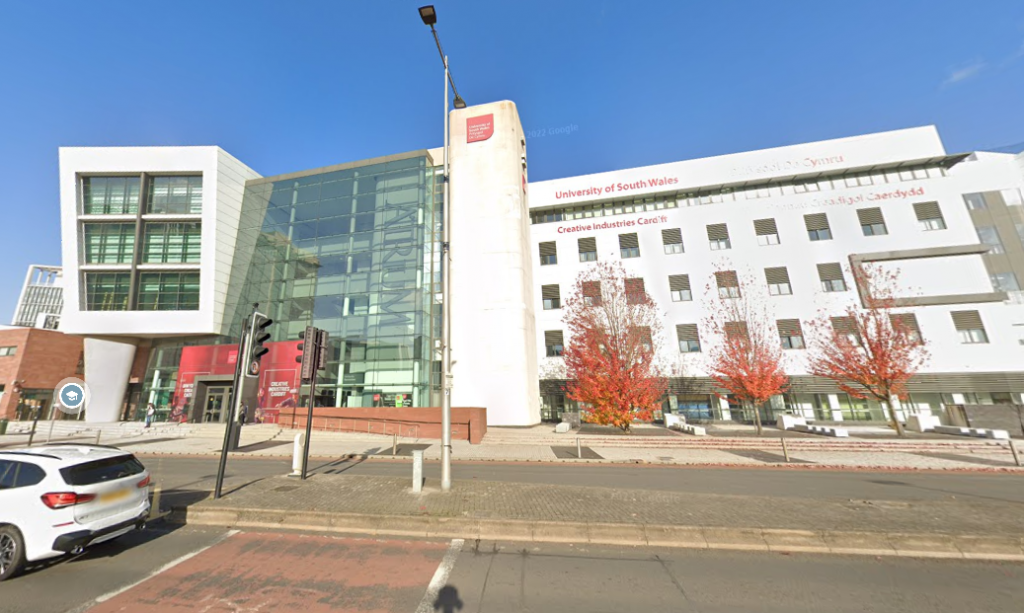Up to £5,000 could be awarded to students from Cardiff Uni, Met and USW
MORE than 3,000 students in Cardiff are trying to claim compensation for the impact of strikes and the pandemic on their university experiences.
Since 2018, students have seen regular interruptions to their learning, including as a result of the pandemic when access to key university facilities such as libraries was cut off and teaching was moved online.
Solicitors running the ‘no-win, no-fee’ claim argue that this broke a contract between universities and students, whereby a certain level of service was required in return for tens of thousands of pounds in tuition fees.
“Students were effectively overcharged for a subpar service and are not going to go away, and neither should they,” says Ryan Dunleavy of Harcus Parker, which is leading the claim.
“The students largely got into a tremendous amount of debt to pay for a service that simply did not do what it said on the tin when they paid for it.
“We argue that is both a breach of contract and of consumer legislation in England and Wales.”
At the time of writing, 2,058 students from Cardiff University, 548 from Cardiff Metropolitan University and 587 from the University of South Wales have joined the Student Group Claim.

Credit: Google
They form part of the 90,000 students nation-wide who are hoping to receive up to £5,000 each in compensation from more than 18 UK universities.
With a student population of around 75,000, those running the claim expect the number of sign-ups in Cardiff to increase and estimate that nationwide, up to three million students could bring claims forward – meaning a hefty bill for these institutions.
What do students think?
The Cardiffian spoke to two Cardiff University students, one past and one present, who have joined the claim and are feeling short-changed over what is often described as the best years of people’s lives.
André Brás-Goldberg, 22, is a masters law student and also studied at Cardiff as an undergraduate.
He feels that he did not receive value for money during his previous three years of study, particularly during the pandemic.
“Many of the enrichment opportunities normally available to students weren’t available to me and almost all of my seminars and tutorials from second year onwards were online,” he said.
“I didn’t like the online tutorials because I felt that people were less engaged and there was less participation overall – some people would not even show their faces. There was less discussion and therefore less learning in my opinion.

“The library was also impossible to access, unless slots were booked a week in advance, and considering I was paying the same price for my degree as someone a couple of years prior, who had everything in person, unrestricted library use, access to societies etc, I feel that an adjustment for the price I paid for uni is appropriate.”
Mr Brás-Goldberg also talked of the impact of the pandemic on the social side of university life, which for many is as important as the certificate at the end of it all.
“It took me a while to make friends from my own course and I think I was limited by not being able to meet new people in-person,” he said.
“Not having socials also restricted my opportunities to make new friends and I have definitely noticed how much easier it is to make friends from my own course when I am with them in-person. That type of contact cannot be replicated by tutorials on Zoom.
“Although I think the university handled the pandemic well and did all they reasonably could, I still did not receive the same value for money as students did in other years and so I still believe a rebate on tuition fees is due,” he added.
I think it’s appalling that I paid full price for a masters degree and I stepped foot on the university campus once.”
Another student, who has now graduated, and feels that her experience was not up to scratch is Alice Gaskin, 24, a sustainability consultant from Leicestershire.
She studied for her masters at Cardiff and says she was impacted by not being able to attend in-person lectures.

Credit: Alice Gaskin
“I signed up (to the claim) because I think it’s appalling that I paid full price for a masters degree and I stepped foot on the university campus once,” she said.
“The level of teaching was okay to be honest. Not quite the level I was expecting for a Masters at Cardiff Uni but it was decent enough.
“Some lecturers were better than others but I would say the teaching at my undergrad at Bangor University was far, far better,” she added.
How have the universities responded?
So far, out of those institutions in the capital, only Cardiff University has been issued with a letter of claim to let them know that legal action is being brought against them.
The cases against Cardiff Met and USW are still being investigated by Harcus Parker, with legal action the next step.

Credit: Google
Cardiff and the 17 other UK universities who have so far been sent letters have, however, been accused of a lack of cooperation with the claim.
“Delays, lack of engagement, and spoiler tactics seem to be the order of the day for the universities,” Mr Dunleavy said.
“They have generally all taken the same approach, which is to argue that the Court shouldn’t be allowed to hear these cases at the moment because the universities themselves should decide whether and if compensation is payable, via their own internal complaints procedures.
“We have not been overwhelmed by Cardiff University’s speed of response either or its enthusiasm to engage with the substance of the case against it.”
Mr Dunleavy says that the firm is still waiting for the university to send copies of the contracts they have with students, despite repeated requests, and believes their defence to be fundamentally flawed.
“One response from Cardiff University is to argue that because it is in Wales it should be treated differently from the English universities,” he said.
“The students’ breach of contract case is being brought under the law of England and Wales however, which is the same law. There are not separate laws for Wales and England. The countries are part of one legal jurisdiction.”
When will students get compensation, if any?
The claim’s success, as it stands, is dependent on the result of a High Court hearing due to be taken on a case brought on behalf of 4,000 University College London students.
UCL is arguing that rather than be allowed to take group legal action, students should instead be made to proceed individually through the university’s own internal complaints procedure.
This is something which Mr Dunleavy argues is no more than a delaying tactic, and would put UCL in a conflicting position where it is acting as both the defendant and judge in the dispute.
“Our clients are not happy with such an approach, for obvious reasons,” he said.
“How many months would it take for students to use the university’s own complaints procedures and then an ombudsman before going to Court? More than a year?
“Why make students go through a drawn out complaints procedure? Why not just offer to pay students compensation right now?”

Credit: Harcus Parker
He is “very” confident that the hearing on May 24 will be decided in the group claim’s favour and expects this will open the floodgates for the rest of the universities to face similar group cases.
As for exactly when students might receive compensation, it is a timeline very much at the court’s discretion, and one which Mr Dunleavy will not be drawn into speculating on.
“Universities across Britain could just pay now,” he said.
“During the pandemic, Cardiff University took furlough money, it will also have saved money on overheads such as utility bills, and it made profits, or what it calls a ‘surplus’ in 2020-2021 of nearly £60 million.
“It was far better financially placed than the students to absorb the financial impact of the pandemic.
“Instead, it chose to push the financial fallout onto the students by taking full fees from them, despite their relative impoverished status already, and regardless of the fact that students were not provided with what they paid for – ie, in person tuition and access to facilities,” he added.
In response to the issues raised in this article, a Cardiff University spokesperson said: “We are dealing with the claim but as there are on-going legal proceedings, we are unable to comment further.”
- To find out more about the Student Group Claim, or to sign up, click here.



